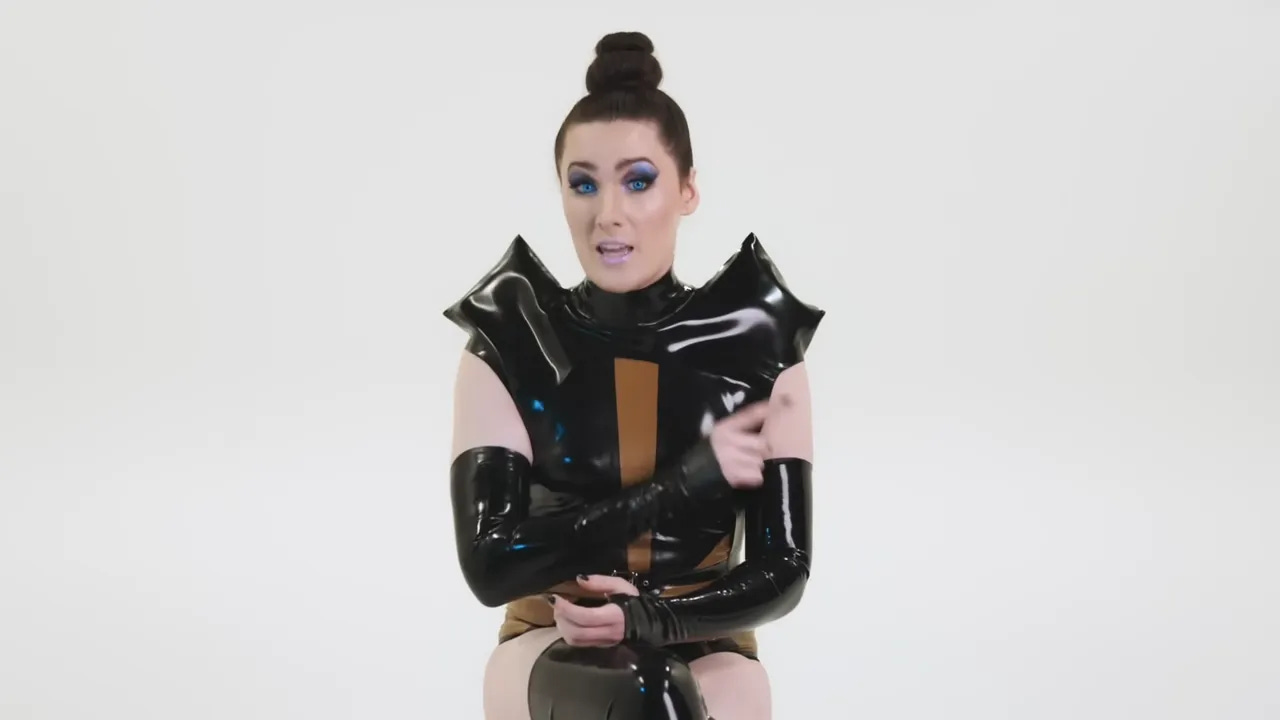Autogynephilia correlates with specific other paraphilia, notably “stuff fetishism”. Ray Blanchard, the man who coined the word autogynephilia, talks about this below:
I don’t think think people are born with that specific crystallised paraphilia, but I think they are born with some sort of defect, where erotic learning is not self-correcting… some paraphilias definitely cluster: autogynephilia and masochism, for example, and autogynephilia, masochism and what we might call “stuff fetishism”: fetishism for particular materials, like leather, silk, rubber… it’s not completely at random…1
The clustering between “stuff fetishism” and autogynephilia can be seen in the following article:

She [sic] vividly remembers the first time she explored that wardrobe, at the age of nine. Her mother was at work, her father asleep downstairs in his chair. Hannah crept into their bedroom and tentatively opened a drawer. She took out a silky nightgown and shrugged it on, feeling the instant, giddy rush of something she would later learn to call “gender euphoria”, though it was tempered by fear that someone would walk in. As if on cue, her mother returned from work unexpectedly and caught Hannah in the act… At secondary school, she would wear tights under her school trousers, enjoying how they felt against her skin.
The topic of stuff fetishism came up again recently, on Ray Alex Williams’s interview with Ray Blanchard2:
Williams: One of the more common objections from from trans women in regards to this theory of autogynephilia — you're saying that this is a paraphilia, but I had some like cross-gender fantasies when I was like six or seven, you know, I was having these daydreams, or I was like fascinated by my mother’s clothing, but they'll say it wasn't sexual. The theory seems to imply from their perspective that these children are paraphilic so I'm wondering like how would you square that circle of these children [being] pre-sexual awakening?
Blanchard: I understand what you're saying. My response is that various paraphilias manifest in childhood they manifest as intense interests or fascinations. You find when you find people who are being honest they'll say “My earliest recollection of anything to do with gender was I was extremely fascinated by a pair of shoes that my aunt had”, or “I was very fascinated by a bathing suit that I saw on one of my sister's girlfriends” and that they describe it as fascination: they don't describe it as “Wow I saw this bathing suit or this pair of shoes and I immediately got an erection” they describe it as something a child would experience which is fascination and a kind of intense focus. So I don't see any contradiction whatsoever between the idea that there can be manifestations of interest in women's garments or other symbolic insignia of femininity before there is what we would recognize as sexual response to those stimuli.
Williams: Right, I mean that tracks my own experiences. I remember you know pre-puberty very young, I had a I developed an intense fascination with like stockings and like hosiery and partly it was due to the the texture of that, because as a young child I was very sensitive to scratchy clothing. I hated tags on my clothing; my clothing had to be very smooth in texture, and so I think there's some like attraction. I've heard like a lot of people say similar.
I also often use another example of a man with autogynephilia from popular media, Abigail Thorn:

In this case stuff fetishism is noticeable as his preference for wearing rubber:

When one recognises that stuff fetishism clusters with autogynephilia, the phenomenon is very noticeable.
Dangerous narrative
I wouldn’t usually consider it ethical to speculate on someone’s psychology. However, I justify this as being necessary to dispel the pervasive and dangerous narrative that there are supposedly a class of “transgender” people, even children, who have a “mismatched” or “incongruent” “gender identity” or “gender”, and that this is something that they infallibly know.
The narrative is dangerous, as the NHS is preparing its puberty blocker trial, for “gender incongruent children”, on this basis, which is set to commence in 2025.
So we have now come to the point we where we have an extreme medical intervention being prescribed to children, even girls, who are distressed regarding their sex for whatever reason, for something which was once only desired by men with an unusual paraphilia — autogynephilia.
I think the medical profession know they have badly messed up, so the chose not to mention this. The UK’s contaminated blood scandal shows that the medical profession absolutely would engage in “downright deception” to cover up their mistakes.
The Cass Review knew about autogynephilia. It received accounts from men marked “strictly confidentially [sic]”, “where relevant anonymously”, “not to be shared”, and had 44 emails in its mailbox about autogynephilia, but chose not to mention the phenomenon.
The medical profession want parents and children to consent to puberty blockers, but won’t inform them about what is really going on.
Read more:
Trans memo
This memo shows that teaching children (by charities, schools and non-governmental organisations) that “trans” is a matter of a mismatched “gender identity” is not the truth, and is causing a psychological contagion, primarily amongst girls.
“Pioneer Series: Autogynephilia: Myth and Meaning with Ray Blanchard” Gender: A Wider Lens Podcast. O’Malley, S., Ayad, S. 4 February 2022.
“The Origins of Autogynephilia: Deep Dive Interview with Dr. Ray Blanchard” Ray Alex Williams. 36:26




